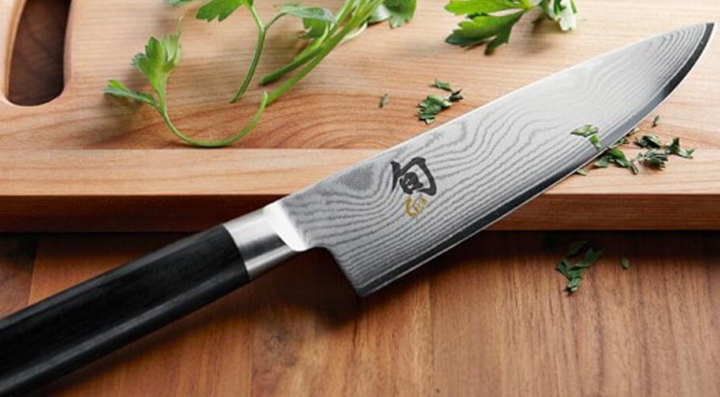
Japanese knives have long been heralded as some of the best tools you can have in an arsenal if you’re even remotely interested in cooking, but many people don’t actually know why is the case. Click here to learn more. In essence, these high quality Japanese knives are so well regarded simply due to their impressive thinness, sharpness, hardness and balance. These elements, combined with excellent construction and attention to detail, make these knives much sharper for longer. It’s a bit more involved than we let on, though, so in this article we take a look at what exactly makes Japanese knives so special when it comes to cooking.
Japanese knife basics
The popularity of Japanese cooking knives, evidenced in such well-known brands as Global and the range of Shun classic knives, should already give you some indication that these products are highly valued by a lot of people. Much of this has to do with Japan’s rich pedigree when it comes to blade – swords and knives have been integral to Japanese culture for centuries, with such steel weapons taking impeccable craftsmanship to create. This attitude to craftsmanship continues with these blades due to much of the same process being incorporated to create the same sharp blade. Hardness is one of the big differentiators between Japanese knife steel and other popular options, such as the steels used in German knives. There is actually a hardness rating system when it comes to knives, with German knives boasting a hardness rating of HRC 52 – HRC 56 compared to the HRC 58 – 65 of Japanese steels. Hardness might all seem arbitrary with something as tough as steel, but the hardness of these knives help them to stay sharper for much longer than other knives. The type of steel can also differ to a wide extent, with different companies using things like carbon steels and modern examples of steel such as VG10 and R2, alongside innovations like nickel plating.
More features that set these knives apart
As you might expect, the sharpness of a blade has a lot to do with the angle of the blade, and Japanese knives can be sharpened to a much finer angle due to their use of extremely dense steel. This sharpness is more than just about making food easier to slice (although this is obviously helpful) – more seamless slicing allows for less pressure on your wrist and other joints, which can encounter a bit of trouble if you regularly use a blunt knife. Sharpening is also made simpler with Japanese knives through their use of a thick extending bolster. Unlike European knives that very regularly have a bolster extending all the way from the top to the bottom heel of knife which requires the bolster to be ground down, the innovative use of the bolster in Japanese knives allows for the sharpening process to be far more streamlined.
Improving on perfection
Another reason that Japanese knives are so impressive is simply due to the commitment of Japanese knifemakers to excellent and innovation. This hunger for improvement is one that has existed in Japanese culture for centuries, just as these techniques for blades have, and will ensure that Japanese knives will continue to be some of the best tools to have in any serious cook’s kitchen.





